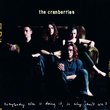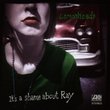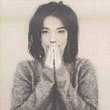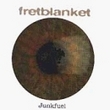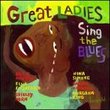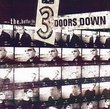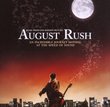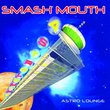| All Artists: Knife Title: Silent Shout Members Wishing: 2 Total Copies: 0 Label: Mute U.S. Original Release Date: 1/1/2006 Re-Release Date: 7/25/2006 Genres: Dance & Electronic, Alternative Rock, International Music, New Age, Pop, Rock Styles: Ambient, Electronica, IDM, Indie & Lo-Fi, Europe, Scandinavia Number of Discs: 1 SwapaCD Credits: 1 UPC: 724596932629 |
Search - Knife :: Silent Shout
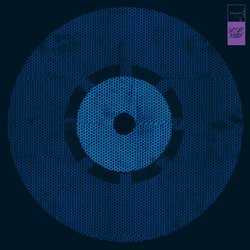 | Knife Silent Shout Genres: Dance & Electronic, Alternative Rock, International Music, New Age, Pop, Rock
|
Larger Image |
CD DetailsSimilar CDs
Similarly Requested CDs
|
CD ReviewsIncredible! SK | NY, NY | 10/02/2007 (5 out of 5 stars) "I bought this because it was listed on Pitchfork as the best album of 2006. I was skeptical, but bought anyway. My music vocabulary isn't extent enough tto describe the layered greatness of this album. By far the best thing I've heard in the last six months. If you love electronic beats, get it!" Original, song-oriented album in the 90s style. Angry Mofo | 12/04/2009 (4 out of 5 stars) "The first song on Silent Shout is a contender for the best dance single of the decade. It takes many cues from Underworld's 1993 classic Dubnobasswithmyheadman: the sparse production, the gradual build-up, and even the bass line recall "Dark And Long." The Knife's fascination with vocal distortion also owes a lot to Underworld. However, the song doesn't just recreate the basic sound of nineties techno, it also recreates the focus on original, catchy rhythms and vocal lines. The keyboard lead in "Silent Shout" is incredible. The rhythm is distinctive, very easy to remember, but quite complex, with a lot of variation in the basic pattern. I can't think of any band of the 2000s that managed to come up with an original musical phrase of this length -- the music of the 2000s tends to focus on extremely basic loops. The title track also has subtle shifts in dynamics. Toward the end, the main keyboard line gains a louder and sharper sound, the individual notes start to blur together as if the music is about to fall apart into noise. But instead, there's a break, the turbulence quickly dies down, and ghostly echoes appear in the outro. The album as a whole is a bit less brilliant, but still immensely enjoyable. The composition is firmly rooted in the song-oriented style of the early nineties, which brings out the originality of the songwriting. Karin Dreijer's vocal style was probably inspired by Bjork's (the same heavily-accented dissonance), but Bjork never thought to warp her own voice the way Dreijer does in "The Captain." She comes on suddenly, after a long, Autechre-like ambient intro; the distortion renders the lyrics unintelligible and makes her voice sound like the call of some shrill, wild bird. There is a certain triumphant, predatory tinge in the vocal rhythm. You'd think they were singing about war instead of sea captains. In many songs, the lyrics appear to express some kind of oblique, vague feminism. "Neverland" is apparently about a high-end call girl who coldly regards her clients, "One Hit" appears to mock traditional ideas of gender roles, and "Forest Families" seems to be about how a young woman feels stifled growing up in a provincial town where adults "said my favourite book was dirty, and 'you should not show you can read.'" I say "seems" because most of the lyrics are indirect, and often suffer from Bjork syndrome, where awkward metaphors and grammatical mistakes are passed off as an original way of expression. For instance, "From Off To On" bothers me a bit, since it uses such an earnestly sentimental delivery (and a demonstratively childlike melody, which I'm pretty sure they lifted from some old Russian children's LP or other) to say such lines as, "we want happiness back, we want control of our bodies" (is that really such a problem in contemporary Sweden?), followed by, "I had a dream about deleting and killer whales." But that's just me; Bjork fans will be all over this. What appeals to me more is the album's tight sense of the dramatic, something it shares with early Underworld. "Forest Families" is sort of a simpler version of "Silent Shout," with the same type of worried keyboard line. But, whatever one may think of the lyrics, when Dreijer intones, "music tonight / I just want your music tonight" in the chorus, that really captures the frustrated young person's desperation. "Marble House" has a swooning, colossal chorus. The verses and music aren't anything special, but when the distorted falsetto starts warbling the rhythm of the chorus, it's pure pop heaven. "Neverland" sounds as icy as its subject, and when Dreijer hoarsely repeats "the money burns in my hand," it creates a haunting sense that the protagonist is about to snap under the pressure. There are only three songs where I don't care for the music: "We Share Our Mothers' Health," "Like A Pen" and "One Hit." All three songs are much less melodic than the rest of the album, and use a jagged analog drum-and-bass rhythm section similar to Aphex Twin's Chosen Lords. "One Hit" is the best of the three, since the lyrics are pretty funny, but none of them can boast anything in the way of melody. In my view, that's the only reason to give the album a less-than-perfect score. Overall, though, this is without question one of the five or ten best albums of the decade. It's the first electronic album of the 2000s to really go back and relearn the lessons of the early nineties, but instead of merely imitating the classics, it uses them to emphasize new, creative musical ideas. In particular, the first three tracks are extremely strong, and make one feel like one is experiencing something completely new and unheard-of. If the entire album doesn't quite meet that standard, that's only because it's a really high standard." Music for my DNA Miss Stir Flippytale | Memphis, TN | 02/13/2009 (5 out of 5 stars) "Another one of those GREAT albums that I must absorb into my DNA. Many repeated plays to come!"
|

 Track Listings (11) - Disc #1
Track Listings (11) - Disc #1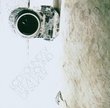
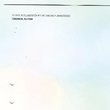
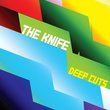
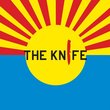
![Fever Ray (2CD/DVD) [Deluxe Edition]](https://nationalbookswap.com/cd//m/91/5191/1675191.jpg)
